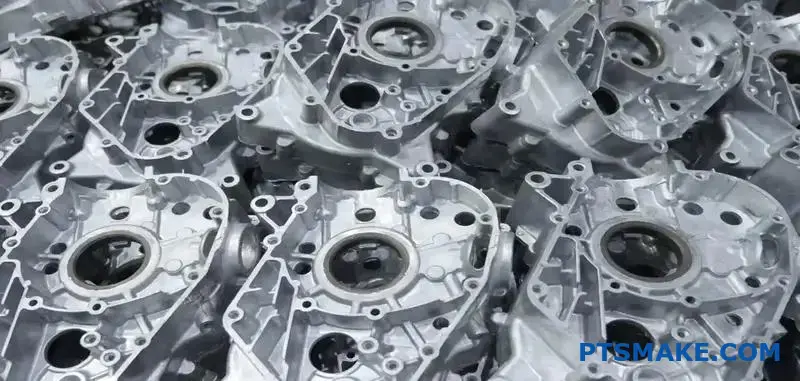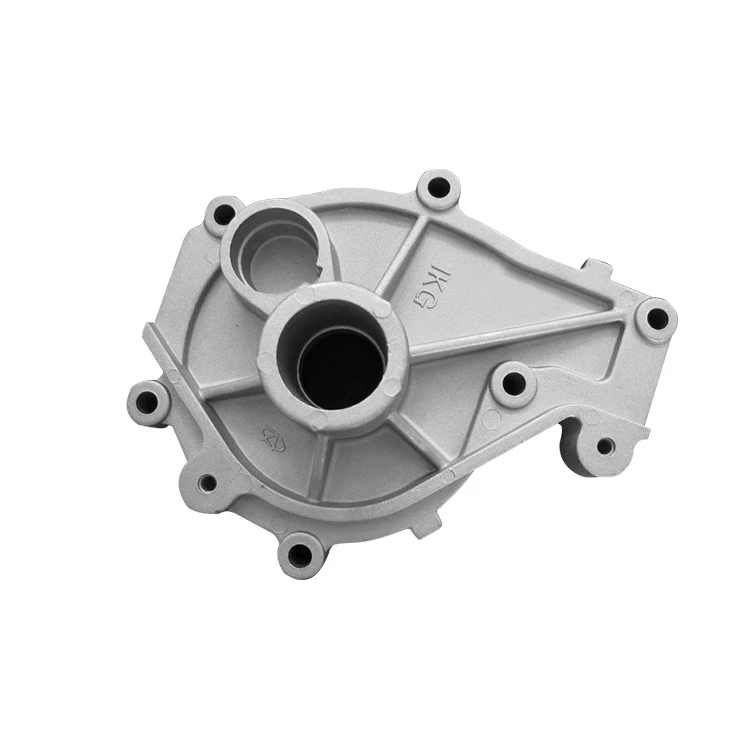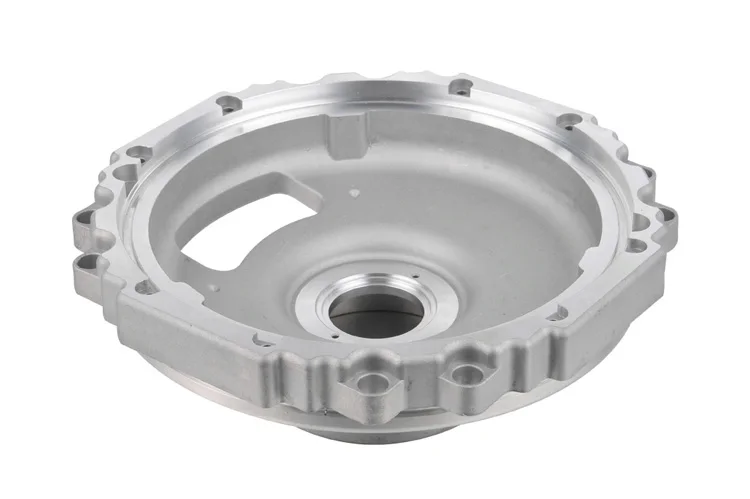Aluminum Foundry expertise that ensures superior product quality
Wiki Article
The Role of Light Weight Aluminum Foundries beforehand Lightweight Production Solutions
Light weight aluminum shops greatly add to the development of lightweight production remedies. Their innovative spreading innovations produce high-strength, light-weight components necessary for markets like vehicle and aerospace. This advancement not just boosts item efficiency yet likewise advertises sustainability through using recycled products. As these factories adjust to emerging technologies and techniques, they lead the way for future growths in manufacturing effectiveness and ecological obligation. What lies ahead in this transformative trip?The Advantages of Lightweight Products in Manufacturing
As sectors increasingly look for performance and sustainability, the adoption of lightweight materials in production has actually arised as an important method - Aluminum Foundry. These materials, especially light weight aluminum and compounds, use countless advantages that boost production procedures and item performance. Mainly, their decreased weight adds to lower power usage during transportation and procedure, resulting in substantial expense savingsLight-weight materials help with the layout of even more complicated geometries, permitting for better development in product growth. This versatility often causes enhanced capability and performance, accommodating the advancing demands of contemporary customers.
Furthermore, the use of light-weight materials can enhance the longevity of items due to their resistance to corrosion and tiredness. This toughness not just minimizes upkeep expenses yet additionally sustains sustainability initiatives, as longer-lasting products add to less waste. To summarize, the benefits of light-weight products are essential in driving performance, technology, and ecological responsibility in production.
Advancements in Light Weight Aluminum Casting Technologies
Recent improvements in light weight aluminum casting technologies are transforming the production landscape, especially in the manufacturing of lightweight parts. Innovations such as high-pressure die casting and vacuum pass away spreading have actually significantly boosted the precision and surface coating of light weight aluminum parts - Precision aluminum casting. These techniques allow for the production of complex geometries while minimizing product waste and enhancing mechanical properties
Additionally, the execution of real-time surveillance systems assures top quality control throughout the spreading procedure, resulting in more constant product outcomes. Collectively, these technologies not only enhance the performance of light weight aluminum elements but additionally sustain the sector's change in the direction of even more sustainable production methods.
Applications of Aluminum Elements in Various Industries
While light weight aluminum elements have actually long been made use of in numerous markets, their convenience and light-weight homes remain to drive ingenious applications across sectors such as automotive, aerospace, and construction. In the vehicle market, aluminum is progressively used for engine blocks, wheels, and body panels, boosting fuel performance and efficiency. Aerospace suppliers take advantage of aluminum for aircraft structures and parts, maximizing its strength-to-weight proportion to enhance fuel economic climate and haul capability.In the building industry, light weight aluminum is favored for window structures, roofing, and structural elements, offering resilience and resistance to rust while decreasing overall building weight. In addition, the electrical and electronics sectors gain from aluminum's conductivity and light-weight nature, using it in wiring, rooms, and warmth sinks. These varied applications highlight the critical duty of aluminum parts, which not just fulfill sector demands yet also add to developments in product style and functionality across numerous fields.
Sustainability and Energy Effectiveness in Light Weight Aluminum Foundries
The aluminum foundry sector plays a crucial function in advertising sustainability and energy efficiency, particularly as demand for lightweight components continues to expand across different markets. Shops are significantly embracing eco-friendly methods, such as utilizing recycled aluminum, which substantially lowers power consumption and greenhouse gas emissions contrasted to key light weight aluminum production.Additionally, advancements in casting modern technologies improve energy efficiency by enhancing the melting processes and decreasing waste. Methods like die casting and financial investment casting permit accurate product usage, minimizing excess and scrap.
Furthermore, several shops are buying renewable resource resources to power procedures, better reducing their carbon footprint. Executing power monitoring systems allows foundries to keep an eye on and boost energy usage, ensuring they operate at peak efficiency.

Future Patterns in Lightweight Production Solutions
How will emerging innovations shape the future of light-weight manufacturing services? Developments such as sophisticated materials, automation, and additive manufacturing visit this website are readied to redefine manufacturing procedures. The combination of clever manufacturing modern technologies, including the Web of Points (IoT) and expert system (AI), will certainly allow real-time monitoring and optimization, boosting effectiveness and decreasing waste.
As sustainability proceeds to be a paramount worry, light-weight options will significantly concentrate on reusing and recycling products, straightening with round economic situation principles. This evolution in lightweight production will not only improve item performance but additionally add to environmental objectives, guaranteeing that the market remains affordable in a rapidly altering market landscape.
Often Asked Inquiries
Exactly How Do Light Weight Aluminum Foundries Make Certain Quality Assurance in Production?
Light weight aluminum shops ensure top quality control in production with extensive testing, standardized procedures, and continual tracking - Aluminum Foundry. They Continued carry out skilled employees and sophisticated innovations to maintain uniformity, decrease problems, and fulfill market criteria throughout the production procedureWhat Are the Main Challenges Encountered by Light Weight Aluminum Foundries?
Light weight aluminum foundries deal with obstacles such as fluctuating resources prices, maintaining production effectiveness, guaranteeing regular quality, adapting to technological advancements, and meeting environmental policies, all of which influence their overall operational efficiency and competition on the market.Exactly How Does Aluminum Recycling Influence Foundry Workflow?
Light weight aluminum reusing significantly enhances factory procedures by reducing resources prices, decreasing energy intake, and lowering ecological effect. This lasting practice allows foundries to enhance effectiveness while satisfying boosting need for lightweight, high-performance light weight aluminum items.What Abilities Are Needed for Workers in Light Weight Aluminum Foundries?
Employees in light weight aluminum foundries need skills in metallurgy, machining, hop over to here quality assurance, and safety methods. Proficiency in operating equipment, recognizing alloy homes, and analytical are likewise necessary for effective manufacturing and keeping high safety standards.How Do Aluminum Foundries Manage Waste Administration?
Aluminum shops take care of waste via recycling scrap metal, utilizing efficient waste partition strategies, and adhering to environmental policies. They execute sustainable techniques to lessen landfill payments, guaranteeing that dangerous products are thrown away sensibly.Aluminum factories considerably contribute to the evolution of light-weight manufacturing solutions. Current innovations in light weight aluminum spreading innovations are revolutionizing the manufacturing landscape, specifically in the manufacturing of lightweight components. While aluminum components have long been utilized in numerous industries, their adaptability and lightweight homes continue to drive innovative applications throughout fields such as automotive, aerospace, and construction. Additionally, the electrical and electronic devices sectors profit from light weight aluminum's conductivity and lightweight nature, utilizing it in electrical wiring, enclosures, and warm sinks. The light weight aluminum foundry market plays an essential function in advertising sustainability and power performance, specifically as need for light-weight components proceeds to grow across different fields.
Report this wiki page